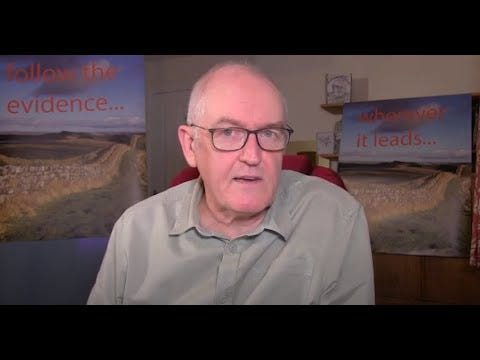Vitamin D2 and D3 Study Retrospective Study
220,000 veterans given D3... Large retrospective study... 33% reduction in mortality rate... Should IPAK do a prospective RCT on Vitamin D3 supplementation?
John Campbell reviews a study published November 2022.
Gibbons JB, Norton EC, McCullough JS, Meltzer DO, Lavigne J, Fiedler VC, Gibbons RD. Association between vitamin D supplementation and COVID-19 infection and mortality. Sci Rep. 2022 Nov 12;12(1):19397. doi: 10.1038/s41598-022-24053-4. PMID: 36371591; PMCID: PMC9653496.
The study found (among other very promising results):
20% reduction in COVID-19 cases in people receiving D3.
0.23% mortality rate, 33% mortality rate reduction in people receiving D3.
While it’s not a RCT, John emphasizes that no one will do an RCT on D3 because there is no money in it, so no one will fund it.
Should IPAK do an Randomized Prospective Clinical Trial on Vitamin D3 and respiratory illnesses - not on critically ill or hospitalized patients, instead, given the lag between VitD levels and ingestion, on health patients across the US.
Let me know in your comments.




Can we please put to rest the reality of EBM (evidence based medicine) The information has been available for 20 years, by those in a position to know what really is going on.
As you likely know, two of the most prestigious journals of medicine are The Lancet and The New England Journal of Medicine (NEJM).
Dr. Marcia Angell, Harvard physician and editor in chief of the NEJM said:
“It is simply no longer possible to believe much of the clinical research that is published, or to rely on the judgment of trusted physicians or authoritative medical guidelines. I take no pleasure in this conclusion, which I reached slowly and reluctantly over my two decades as an editor.”
Dr. Relman, another former editor in chief of the NEJM said this in 2002 - “The medical profession is being bought by the pharmaceutical industry, not only in terms of the practice of medicine, but also in terms of teaching and research. The academic institutions of this country are allowing themselves to be the paid agents of the pharmaceutical industry. I think it’s disgraceful.”
Richard Horton, editor in chief of the Lancet said:
“The case against science is straightforward: much of the scientific literature, perhaps half, may simply be untrue. Afflicted by studies with small sample sizes, tiny effects, invalid exploratory analyses, and flagrant conflicts of interest, together with an obsession for pursuing fashionable trends of dubious importance, science has taken a turn towards darkness” (2). Horton R. Offline: What is medicine’s 5 sigma? [Last accessed August 5, 2015]. www.thelancet.com. Available from: http://www.thelancet.com/pdfs/journals/lancet/PIIS0140-6736%2815%2960696-1.pdf.
Until this issue is finally addressed, EBM is not the instrument that could have changed scientific inquiry. It's the best example of fraud in scientific investigation. The lack of transparency and misrepresentation of the scientific process has crippled the discovery of medicine and the regulator capture of our pubic health agencies has become the nail in the coffin of science.
Of course doing research on D3 would be extremely beneficial. I remember going to an herbal medicine conference 15 years ago and hearing an oncologist stating that every single cancer patient in his 30 years of practice had low levels of D3. ALL patients. He went on to say that not everyone with low D3 will get cancer but everyone who gets cancer has low D3. Imagine how many people could have avoided cancer had this critical information been available to the general public and all PCPs. I suspect the same would be true of Covid patients.